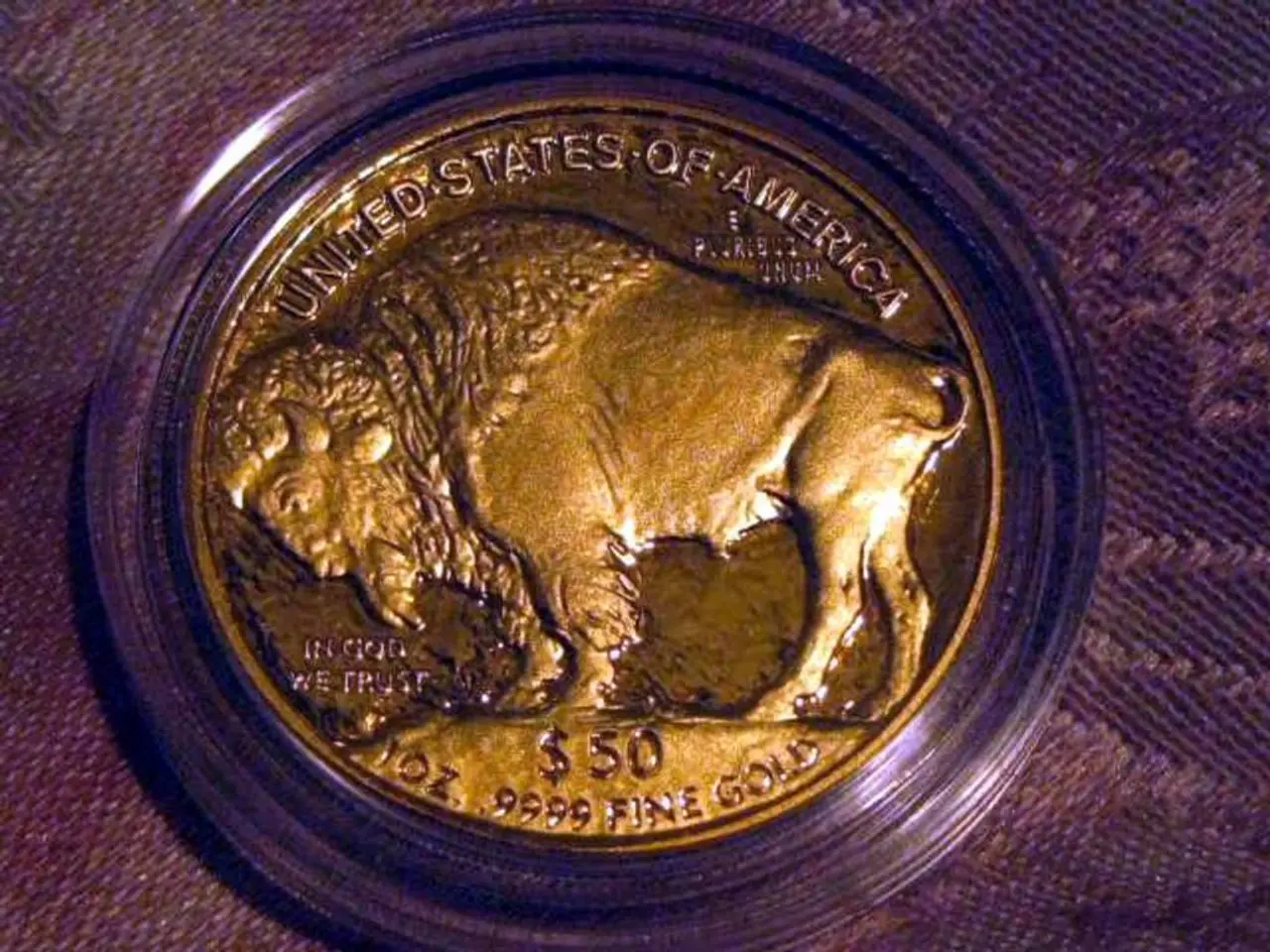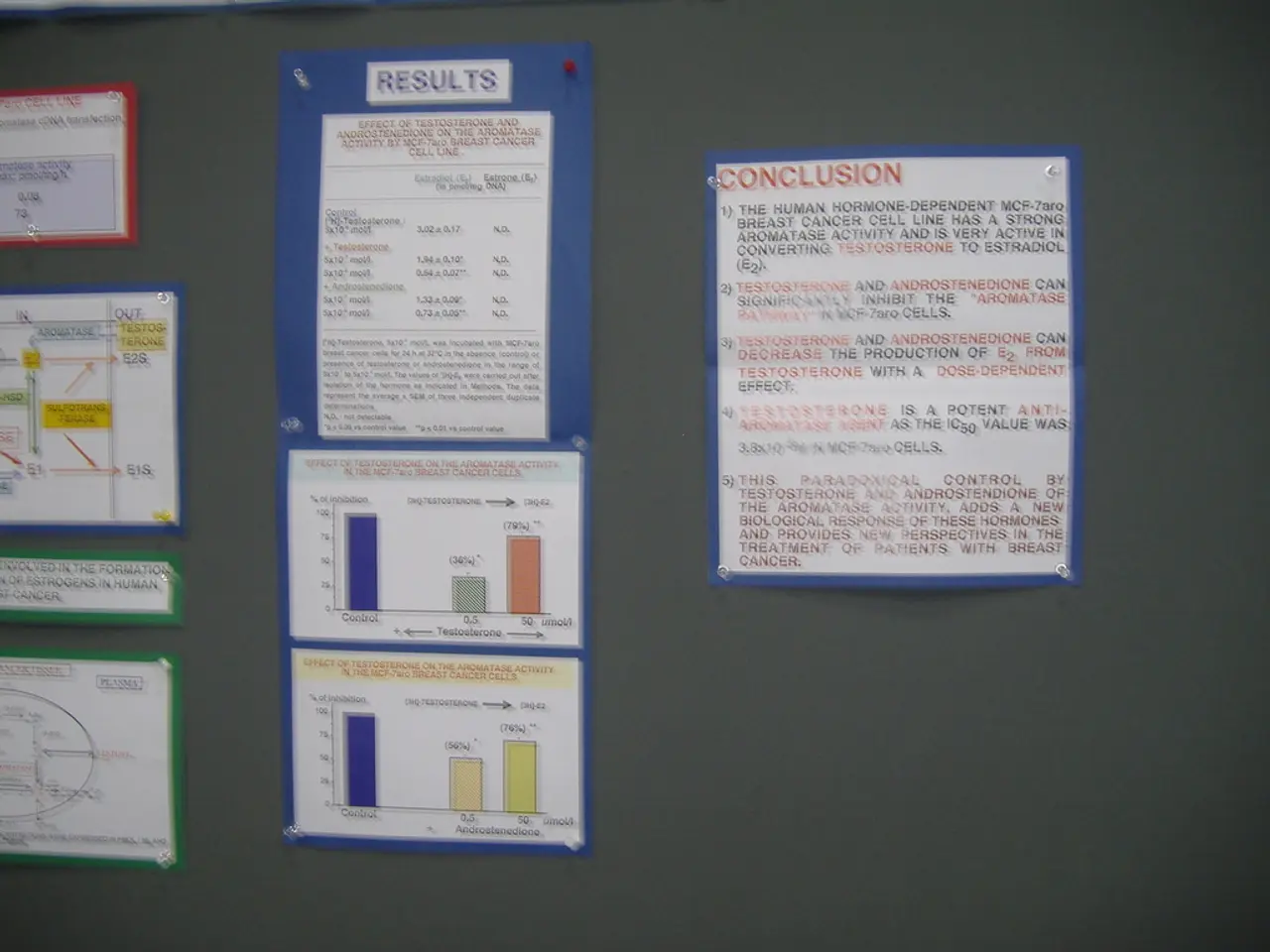Central Bank keeps main interest rates steady at 2% - Escalating trade disputes with the US hinder additional rate adjustments
In an exceptionally uncertain economic environment due to the ongoing trade dispute between the EU and the US, the European Central Bank (ECB) has acknowledged the impact of the trade tensions on its monetary policy decisions[1].
Despite the uncertainties linked to trade tensions, including tariffs rising sharply on EU goods, the ECB's Governing Council recently decided to keep key interest rates unchanged, as inflation remains at its 2% medium-term target[3]. This cautious approach reflects concerns about the disinflationary impact of tariffs and trade tensions contributing to economic uncertainty.
The ECB discussions suggest that trade tensions weigh on monetary policy decisions to avoid raising rates amid weak growth prospects[1]. The trade dispute's impact is largely disinflationary, rather than inflationary, influencing the ECB to hold steady rather than tighten[1][3].
The EU-US trade dispute has led the ECB to adopt a wait-and-see policy stance characterized by unchanged interest rates. This cautious approach aims to balance supporting price stability without prematurely tightening policy amid risks from trade-related shocks.
Key points:
- Trade disputes add significant uncertainty and disinflationary risks to the Eurozone economy[1].
- ECB has kept interest rates unchanged, with inflation near target, reflecting a cautious stance[3].
- ECB discussions suggest trade tensions weigh on monetary policy decisions to avoid raising rates amid weak growth prospects[1].
- The trade dispute’s impact is largely disinflationary, rather than inflationary, influencing ECB to hold steady rather than tighten[1][3].
The ECB's decision not to lower interest rates further, with the key interest rate remaining at 2%, was an important contribution to supporting the economy in the past year[4]. However, the ECB will not take any hasty steps for the coming weeks, remaining cautious as long as political risks are not resolved.
Since the beginning of the year, the European currency has significantly recovered, with the euro moving from around $1.03 to around $1.175 after the ECB's decision[5]. Over $3 million has already been raised in the ongoing presale for Bitcoin Hyper, a new Layer-2 project based on Bitcoin, working with the Solana Virtual Machine[6].
Analysts are eagerly awaiting the next ECB meeting in September for new economic forecasts. Cryptocurrencies are currently benefiting from accommodative monetary policy, creating room for more speculative investments.
The EU exported goods worth around €503 billion to the US in the previous year, and these economic relationships could be significantly disrupted without a last-minute agreement[7]. The ECB is adopting a cautious approach, closely monitoring the situation but holding back on monetary policy as long as the outcome of the trade talks is uncertain. The ECB wants to prevent additional uncertainties from destabilizing the financial markets.
[1] Reuters (2021). ECB's Lagarde says trade tensions adding to uncertainty, but sees no immediate impact on inflation. Retrieved from https://www.reuters.com/article/us-ecb-lagarde-trade/ecbs-lagarde-says-trade-tensions-adding-to-uncertainty-but-sees-no-immediate-impact-on-inflation-idUSKBN2E01E7
[2] BBC News (2021). Trump announces 15% tariff on EU goods. Retrieved from https://www.bbc.com/news/business-58012895
[3] ECB (2021). Press conference with President Christine Lagarde, 22 July 2021. Retrieved from https://www.ecb.europa.eu/press/pressconf/2021/html/ecb.sp210722_1.en.html
[4] Reuters (2020). ECB cuts interest rates further to record low as it battles economic slump. Retrieved from https://www.reuters.com/article/us-ecb-meeting/ecb-cuts-interest-rates-further-to-record-low-as-it-battles-economic-slump-idUSKBN25O16X
[5] Bloomberg (2021). Euro Drops After ECB Says Trade Tensions Are Disinflationary. Retrieved from https://www.bloomberg.com/news/articles/2021-07-22/euro-drops-after-ecb-says-trade-tensions-are-disinflationary
[6] Bitcoin Hyper (2021). Presale. Retrieved from https://bitcoinhyper.io/presale
[7] Eurostat (2020). Exports to the United States. Retrieved from https://ec.europa.eu/eurostat/statistics-explained/index.php/Glossary:Exports_to_the_United_States
- The European Central Bank (ECB) has kept its interest rates unchanged, indicating that the rising tariffs and trade tensions between the EU and the US are having a disinflationary impact on the Eurozone economy, rather than an inflationary one.
- In the uncertain economic environment caused by the ongoing trade dispute, the ECB's decision to adopt a wait-and-see policy stance, characterized by unchanged interest rates, aims to balance supporting price stability while avoiding prematurely tightening policy amid risks from trade-related shocks.




